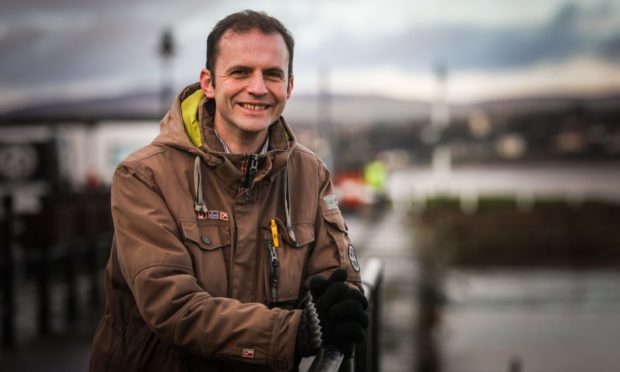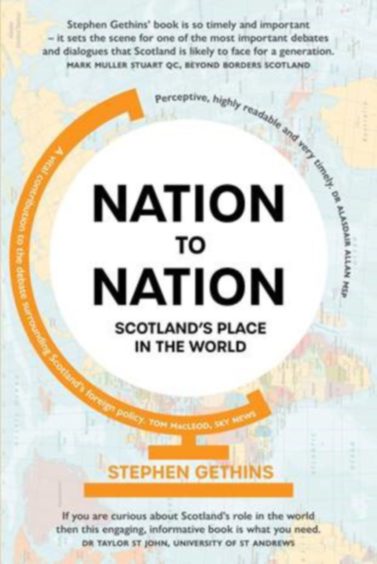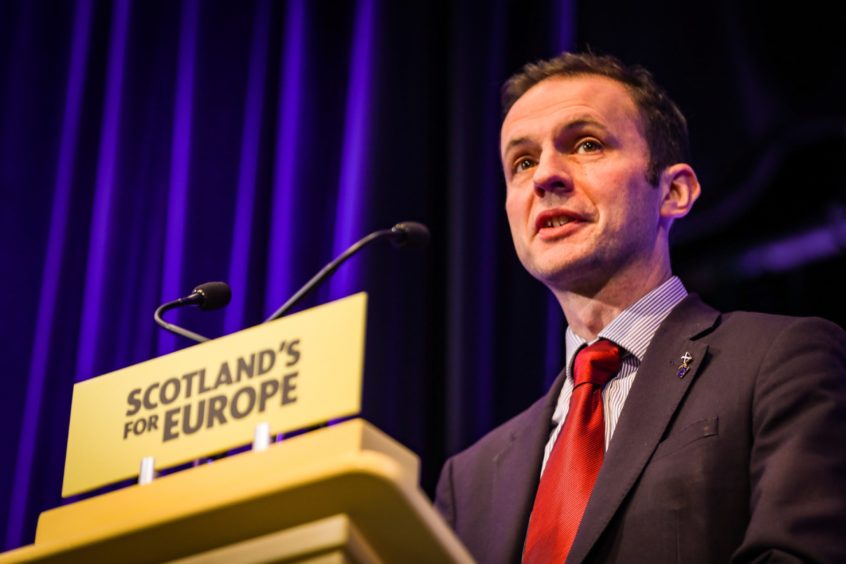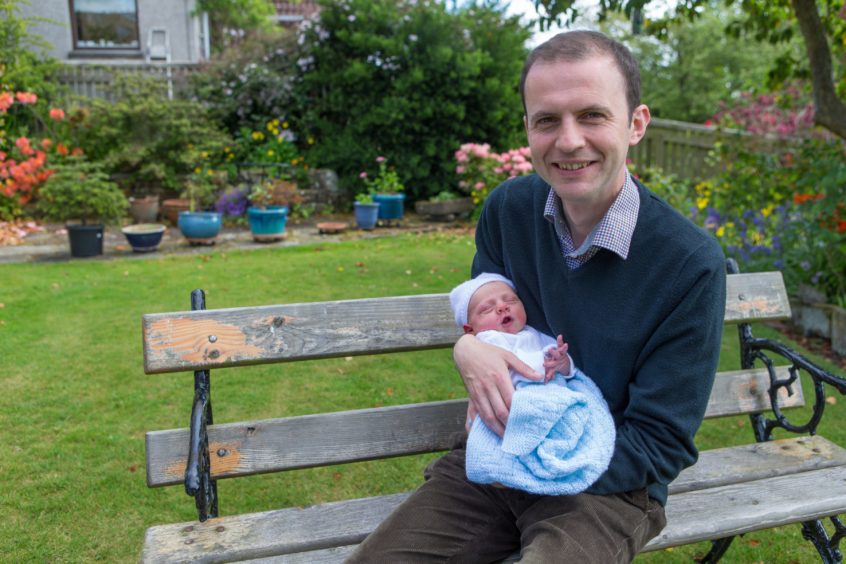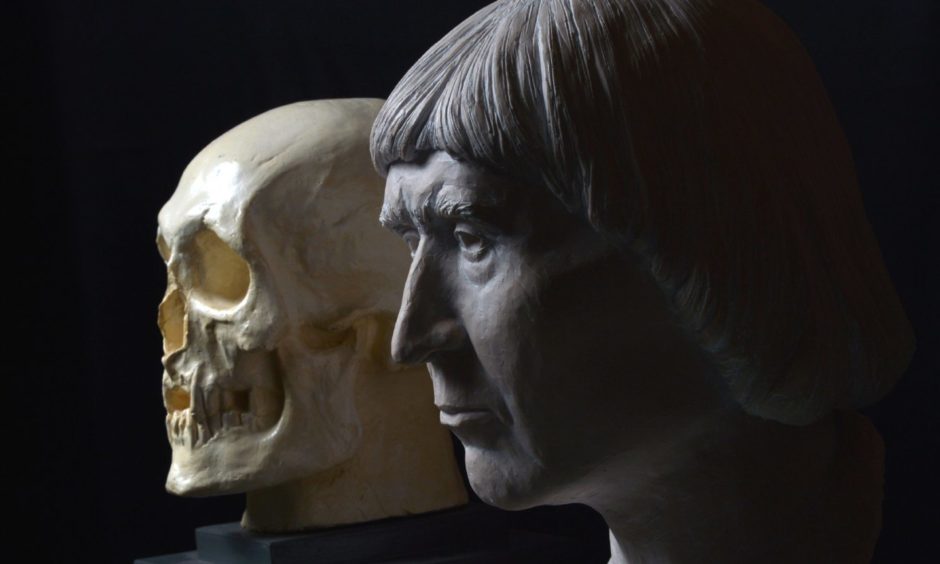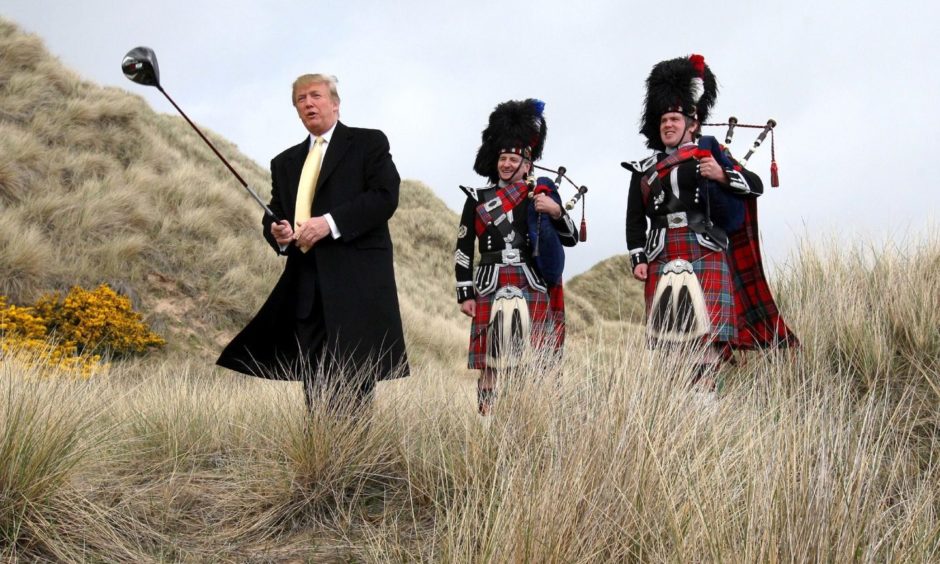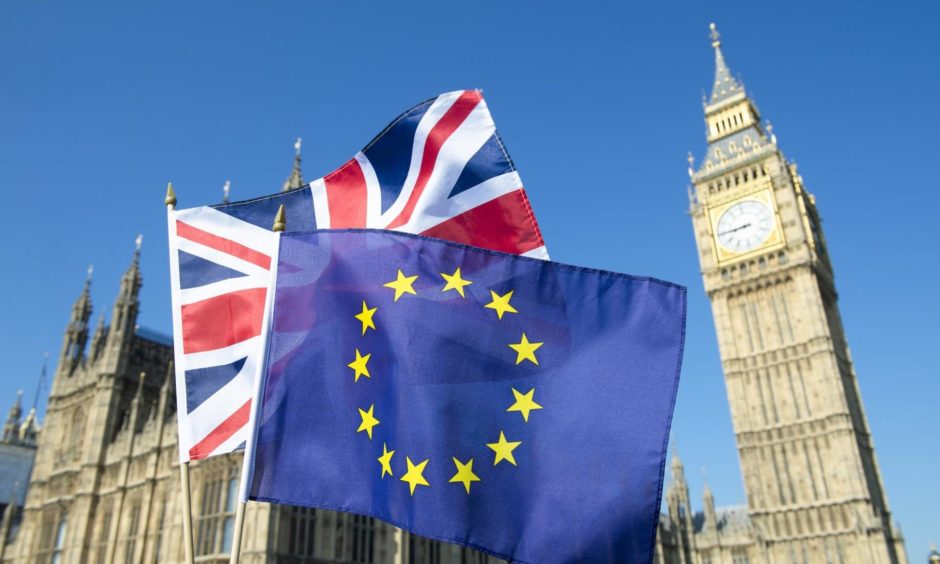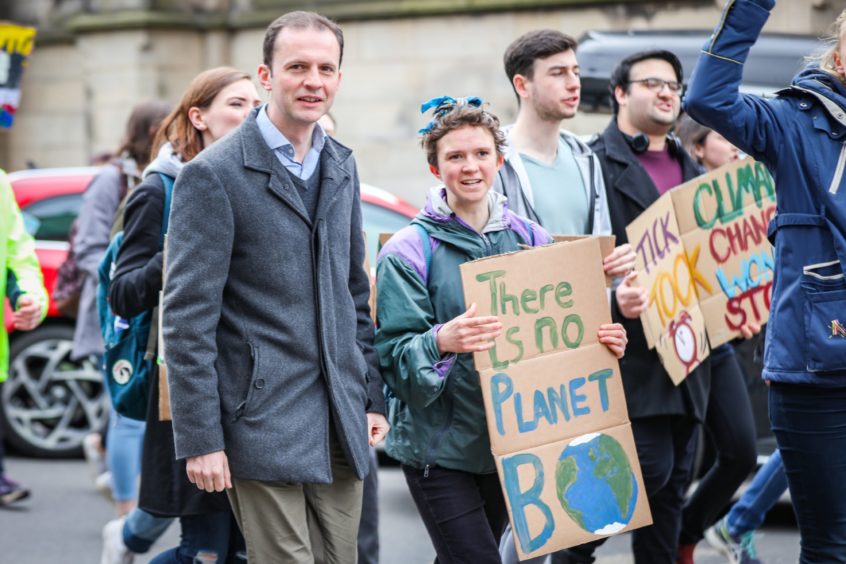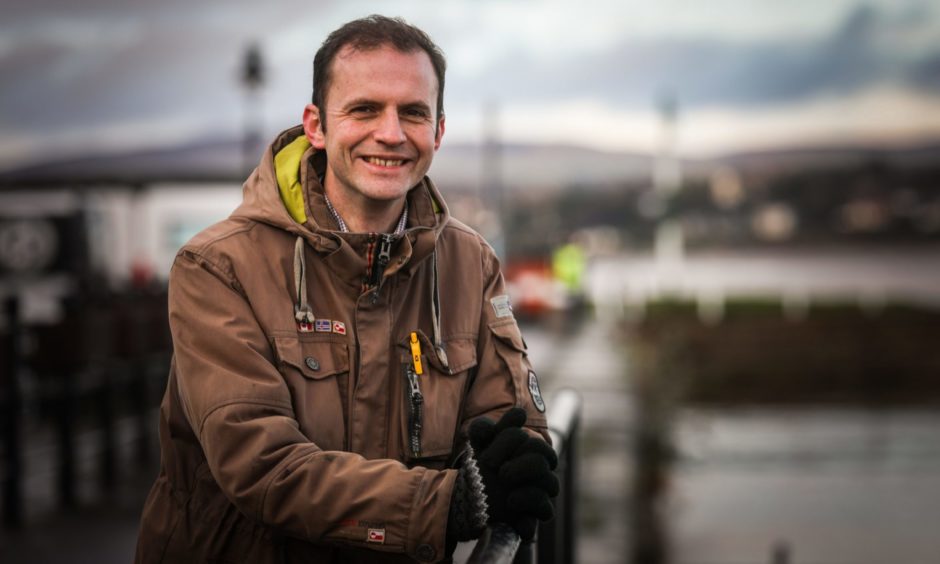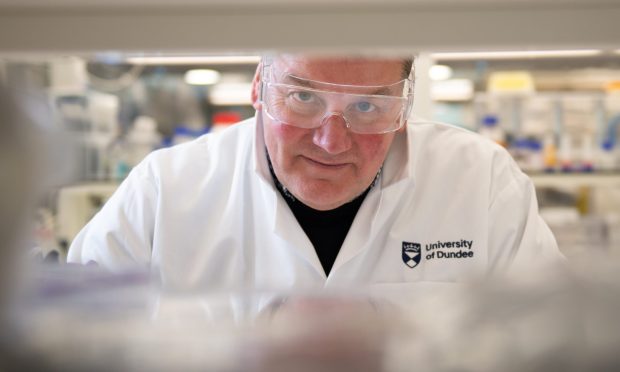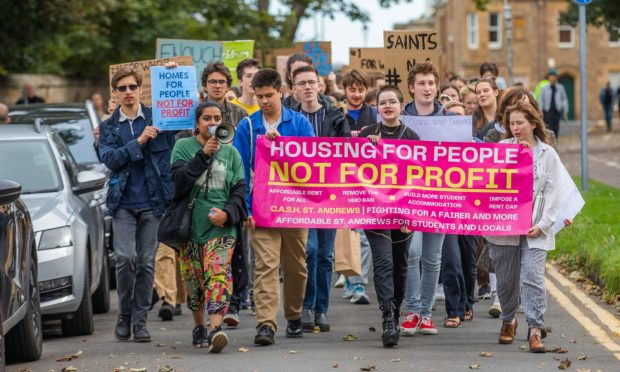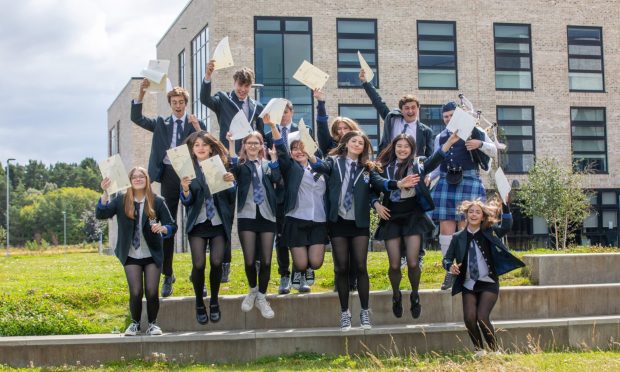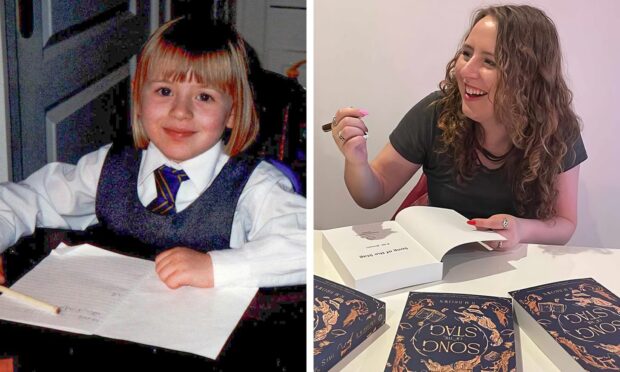Michael Alexander speaks to former North East Fife SNP MP Stephen Gethins who, in his new book, says Scotland must be clear in what it wants from its international affairs now and in the future.
The UK’s recent pledge that it is to shift its focus away from Europe towards alliances in the Indo-Pacific region after a year-long review of its foreign policy – paving the way for an increase in its nuclear warhead stockpile – has sparked fresh debate about the role of “Global Britain” in a post-Brexit world.
But where does Scotland’s foreign policy feature in this vision and how might the country consciously build its future international role moving forward?
In his timely new book, Nation to Nation: Scotland’s Place in the World, new and innovative ways of evolving Scotland’s foreign policy are explored by Stephen Gethins, Professor of Practice in International Relations and a strategic adviser on external relations at St Andrews University.
The former North East Fife SNP MP, who became SNP Europe spokesperson when he was elected to Westminster in 2015 and foreign affairs spokesperson when elected in 2017, demonstrates how Scotland’s functions within its own borders and its value as a member of the global community are linked.
A staunch supporter of the European Union who believes that the UK’s Brexit negotiators didn’t understand the EU, he celebrates the results of Scotland’s exercise of “soft power” in recent times and raises the possibility of Scotland helping to heal post-Brexit antagonisms.
He suggests that Scotland could creatively utilise its 70 million strong diaspora to develop international relations, and he makes the case that team effort is key in a synergy of networks drawn from universities, NGOs, trade unions, the law, business communities and cross-party political representatives.
In an interview with The Courier, Stephen says that perhaps inevitably, he’s had “very positive reaction” about his book from those that believe in Scottish independence and a “very negative reaction” from those who don’t.
But what unites many of the keyboard warriors so far, he says, is that they haven’t actually read the book.
“I think both will be disappointed because I’ve not written a book that says independence is brilliant and I’ve not written a book saying ‘isn’t the union awful’,” says Stephen.
“I’ve tried to do something that doesn’t happen in politics which is I’ve tried to introduce a bit of nuance into the debate.”
Expert on Scotland’s foreign affairs
Before his election to Westminster in 2015, Perth-raised Stephen worked in democratisation and peace-building overseas including in the Western Balkans and South Caucasus.
He also worked in the EU Committee of the Regions and Scotland House in Brussels, and was a special adviser to Scotland’s First Minister from 2009 to 2013 where he focused on energy, climate change, rural affairs, Europe and international affairs.
After losing his seat at the December 2019 general election, he was appointed to his professorship role at St Andrews University.
A special adviser at Beyond Borders Scotland, he also became a trustee of the John Smith Trust and is convener of the recently formed pro-EU group EU+ME.
But the removal of his weekly commute to London alongside the extra time he’s had at home with his young family during the Covid pandemic has also given him the opportunity to remotely interview worldwide subjects for the book that he’s been contemplating for years.
Ever since his Erasmus days in Antwerp, and during his pre-elected politics days working overseas, Stephen noticed Scotland had a “distinctive brand”.
In recent years, that divergence between Holyrood and Westminster has become even more apparent over issues like climate change, international development, and particularly Brexit.
Yet no one was talking about Scotland’s foreign policy footprint and it was something he wanted to explore.
Centuries-old Scottish foreign policy legacy
Stephen says the aim of the book is firstly to illustrate that Scotland has a foreign policy footprint and that it has done through history with the diaspora, through universities, through business and through politics.
In the first chapter, he shows how foreign policy has shaped Scotland and how Scotland has shaped international affairs – an evolution that continues to this day.
“If you look overseas, there’s a guy called Senator Jim Webb who was US secretary for the navy in President Ronald Reagan’s administration,” says Stephen.
“He writes about the impact of the Scots on the USA.
“He says there’s been a distinctive idea of the Scots dating right back to the era of the Romans.
“He romanticises it a little bit. But that has shaped him and he talks about it shaping the USA.
“If you look domestically, the first thing that William Wallace did in the aftermath of the Battle of Stirling Bridge is he wrote a foreign policy letter to the Hanseatic League – the EU of its day – saying that Scotland was open for business.
“Robert the Bruce – one of the first things he did was to write the Declaration of Arbroath which was a letter to the Pope – the UN of its day – saying Scotland was independent.
“And then Scotland’s independence if you like came to an end with the Darien Scheme which was a foreign policy venture to establish a colony in Panama.
“We’ve been shaped by foreign policy, and that’s going right the way back in history.
“But we’ve also shaped elsewhere.
“There’s only 10 US presidents who’ve not had a Scottish connection.
“You see it through Canadian politics, Australia, throughout Europe.
“The South African president Thabo Mbeki came to the Scottish Parliament and talked about the impact of the Scots on South Africa.
“I can even remember I was working in a rural part of Namibia speaking to local politicians who were talking about Scottish missionaries but also more recently Namibians exiled to Glasgow where they established Namibia’s first free newspaper.”
Courier Country influences
Stephen references strong foreign policy links to Courier Country including the 160 nationalities represented at St Andrews University, the influence of Flemish culture on east coast place names and architecture, cultural exchange links between schools and Europe and even the “soft power” surrounding his favourite football team Dundee United which is still revered worldwide for its European adventures during the 1980s.
In his book Stephen combines his knowledge from years of work in the field with insights from political, cultural and academic figures who have been at the heart of foreign policy in Scotland, the UK, Europe and North America.
People he’s spoken to include both surviving Labour First Ministers Jack McConnell and Henry McLeish; former Scotland Office minister Ian Duncan, and former Brexit campaigning MEP David Campbell Bannerman.
He’s also spoken to many cross-party former colleagues “off the record” to get a feel for their thoughts.
He concedes that for those in favour of independence, there are “some pretty hard” foreign policy questions to answer.
For example, are you comfortable pooling and sharing sovereignty with the rest of the European Union?
What’s your relationship like with the rest of your partners in these islands?
Have you faced up to Scotland’s legacy of involvement in the trans-Atlantic slave trade?
But there are “big questions” for unionists as well.
For example, if Scotland is going to remain in the UK, how does the UK make use of Scotland’s international brand?
If data suggests that those under-60 are less likely to believe in the union and are more likely to feel Scottish and European, how do you make them feel part of something within the UK?
If Scots favour retaining connections with the rest of Europe, can UK foreign policy be decentralised?
“I did a bit of research which showed the UK doesn’t make the most of Scotland’s international brand – it doesn’t make the most of its diaspora,” he says.
“The UK is miles behind decentralised engagement on foreign policy.
“I use the example of the Copenhagen Climate Change Summit (in 2009) when the UK missed a huge opportunity with Scotland’s ambitions – renowned throughout the world at that time – by not including the Scots.
“The Germans, the Belgians, the Canadians are miles ahead in giving their subsidy actors a considerable amount of recognition.”
Ongoing debate about Scotland’s future
Stephen acknowledges there’s ongoing hot debate about Scotland’s future.
But one thing, he says, that makes difficult reading for any politician is data showing that people are “switching off” because they “don’t like unilateralist global Britain moving away from the rest of Europe.”
Stephen believes “the genie is out of the bottle” both in terms of the case for Scottish independence and Brexit’s rejection by people in Scotland.
Not everyone agrees of course. However, he would very much like an informed debate around how Scotland’s foreign policy debate will evolve inside or outside the UK.
“I think a lot of the negative stuff comes through ignorance as it often does – and you get that on both sides,” he says.
“Nuance and the ability to have debate is fast disappearing from our politics. I think it comes from fear.
“But I was really encouraged by the people who spoke to me – who don’t agree with me – but spoke to me because they want to see this debate go forward in a really sustained and reasonable way.
“No country has ever gained independence as prepared as Scotland would be either domestically or on the foreign policy side of it. Scotland is a globally recognised international brand.
“The Irish ambassador said to me that in many ways in the USA the Scottish brand is better than the Irish brand.
“I don’t necessarily agree with him, but it’s really well developed.
“You have a diaspora of 70 million people with business, social, educational and other links that very few countries on earth have.
“Also if Scotland is going to be independent, I know from speaking to politicians throughout the EU that Scotland would be a member of the EU relatively quickly because we have that domestic consensus and there is increasingly that international and European recognition that Scotland would be a member.
“Critically, however – and this is something I got from Danish, German and Brussels politicians – Scotland could also help act as a bridge to help repair the damage that’s been done by the Brexit process.”
Dundee United – an example of Scotland’s ‘soft power’
The son of a Dundee French teacher and the grandson of a Lochee man who served with the Black Watch up the Kyber Pass, it’s no secret that Stephen is a lifelong Dundee United fan, and in the book he cites the Tannadice club as an example of Scotland’s “soft power”.
“When I was a student in Antwerp or working in Brussels, or even working in one of these conflict affected areas, football was an international language,” he smiles.
“Everyone knew who Dundee United were. It was a conversation starter. Historically it’s because of Dundee United’s European record, and in recent years it’s because you’ve got players from across the world who’ve come to play at Dundee United.”
If diplomacy is all about other countries liking you and knowing about you, then in that context, football is a critical part of culture and Dundee United are a massive soft power asset for Scotland.
He talks about the goodwill generated by folk just knowing about your football team.
He illustrates legendary former Dundee United goal keeper Hamish McAlpine being immortalised in Michael Marra’s song Hamish the Goalie.
Then there’s the famous visit of Princess Grace and Prince Rainier of Monaco to Tannadice for the Dundee United v Monaco match in 1981.
He also mentions the remarkable story of former Dundee United captain Neil Paterson who won an Academy Award in 1960 for the screenplay of Room At The Top. By doing so, he stopped Ben-Hur from taking a 12th Oscar.
“That soft power is an incredibly powerful commodity,” adds Stephen, “and that’s something Scotland has got in spades.
“Dundee United are one of Scotland’s best foreign policy assets – and I don’t care what any other football team says!”
Foreign policy damage is ‘real’
Stephen acknowledges that not everything in Scotland’s past should be celebrated.
For example, Scotland played a key role in Britain’s slave trade – a history that must be faced up to. Conversely, many Scots were victims of the Highland Clearances, forced to make way for sheep.
But he warns that foreign policy damage has real consequences for people and real consequences for jobs in the modern world.
This is already manifesting itself through Brexit, he says, with the full extent of economic damage so far clouded by the Covid pandemic.
But there are other, wider, consequences too.
“The consequences are the UK is not looked on favourably,” he says.
“Brexit was seen as an isolationist unilateral project that is exceptionally damaging for the country’s reputation.
“Whether we like it or not, Scotland is part of that country and is therefore damaged by Brexit.
“No matter what people say, Brexit is damaging. And I use illustrations in the book of the way the UK is described in German newspapers, French newspapers, American newspapers.”
To emerge from that, Stephen says that Scotland must use it’s own international brand to try and distinguish itself.
It already does that to an extent within the UK to sell goods like whisky, food and drink and even education.
Scotland has built a lot of goodwill to generate links to our closest partners.
But he believes that relationships and the Scotland brand should be further used to build bridges because if not, it will cost more jobs and have long terms consequences.
“Remember, Scotland’s brand isn’t something that happened when the SNP came to power,” he adds.
“The reason I started talking about Wallace and the Darien scheme, is that historically we’ve stood on the world stage.
“Philip John Rycroft gave me an interview. He was the chief civil servant who served as the Permanent Secretary at the Department for Exiting the European Union.
“He said to me even when he was in the private office of Tory ministers, they were using Scotland’s branding to sell products in Japan and Korea. The minister would turn up with the kilt on, on a visit to Korea.
“Remember Scotland House in Brussels opened under a Conservative government.
“These links and this particular brand is something that has been exploited by Conservative ministers then by Labour and the Liberal Democrats, and actually the SNP were simply picking up where that had been left off and developing it further after 2007.”
‘Goodwill’ towards Scotland
Stephen says it’s clear a lot more work needs to be done to develop Scotland’s foreign policy potential.
The Courier recently revealed how a new ‘Scotland House’ hub would bring government offices, private industry, and the public sector together under one roof in the Danish capital Copenhagen, as the SNP aims to burnish Scotland’s foreign policy reach.
But it’s been interesting looking at the “goodwill” towards Scotland.
“There is a serious question as well here,” he says.
“The UK is changing rapidly. The UK that goes into the general election in 2024 will be a radically different UK to the one that left the EU transition period in January.
“The one thing I’ll say to people is engage with the book and think about where Scotland is going in the world.
“This isn’t a debate you can duck. Nothing is standing still. It’s a choice not to do anything as much as it’s a choice to do something. And there’s no such thing as the status quo anymore.”
*Nation to Nation: Scotland’s Place in the World by Stephen Gethins , published by Luath Press, is available now priced £12.99.
